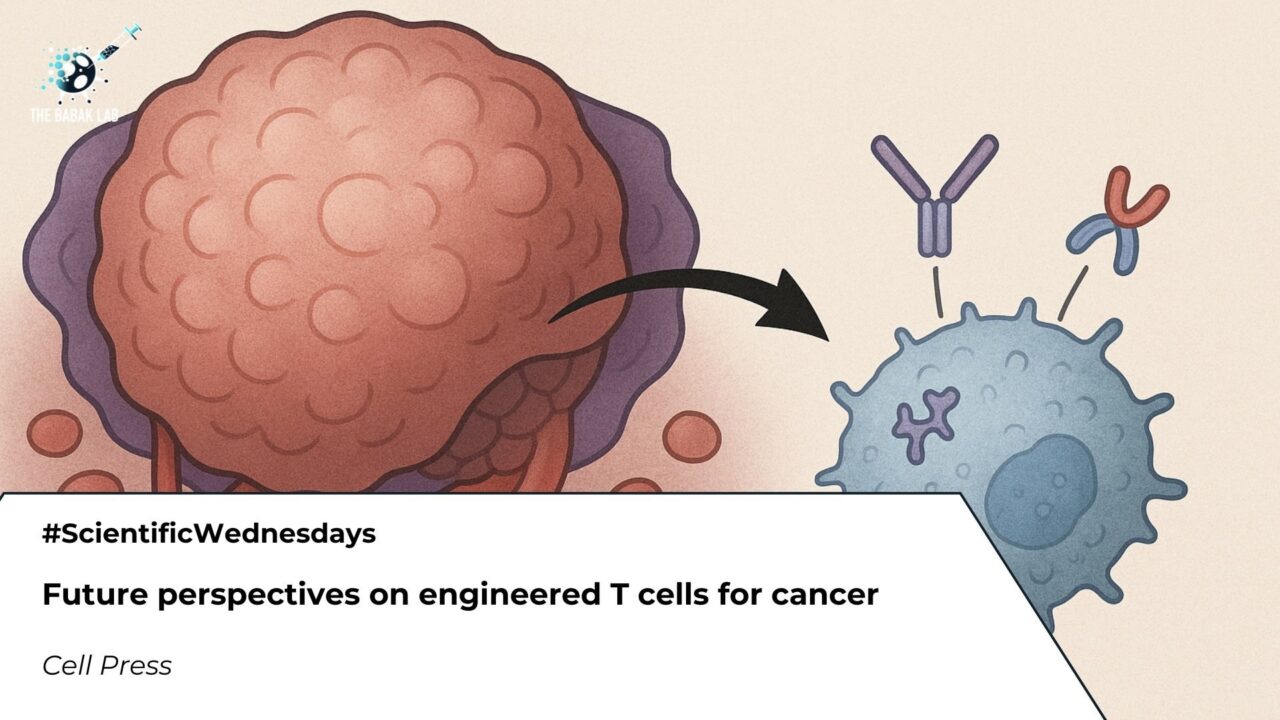The Babak Lab shared a post on LinkedIn about a recent article by Avery D. Posey Jr et al. published in Cell Press:
“Why T‑Cell Therapy Struggles in Solid Tumours
New research highlights why engineered T‑cell therapies are so succtumours due to poor tumour penetration, lack of standout targets and a suppressive tumour trying to turn things around.
Key Focus:
T‑cell therapies fail in solid tumours due to poor tumour penetration, lack of standout targets, and a suppressive tumour environment, but new designs and combinations are trying to fix these issues.
Key Insights
- Physical barriers and dense tumour structure can block engineered T‑cells from reaching cancer cells.
- Solid tumours rarely express a single, stable target—antigen variation makes it hard for T‑cells to stay effective.
- Multi-antigen targeting strategies are being developed to help T-cells adapt to changing tumour profiles.
- ‘Armoured’ T-cells are engineered to resist immunosuppressive signals within the tumour microenvironment.
- Smarter delivery systems, including local injections and tissue-targeted trafficking, aim to improve T-cell access.
- Combinations with checkpoint inhibitors or other immunotherapies may help overcome resistance mechanisms.
Conclusion
T‑cell therapy remains promising, but for solid tumours, it needs more than just the same approach that worked for blood cancers.
The next wave of therapies is about smarter engineering, better delivery, and smarter combination strategies.
Image generated using Sora by OpenAI.”
Title: Future perspectives on engineered T cells for cancer
Authors: Avery D. Posey Jr, Regina M. Young, Carl H. June
Read the Full Article on Cell Press
 Maria (Masha) Babak, Head of The Babak Lab and Assistant Professor at City University of Hong Kong, shared this post, adding:
Maria (Masha) Babak, Head of The Babak Lab and Assistant Professor at City University of Hong Kong, shared this post, adding:
“The focus in T cell therapy is shifting toward multi-layered engineering rather than just finding the “right” antigen.”
More posts about The Babak Lab.


